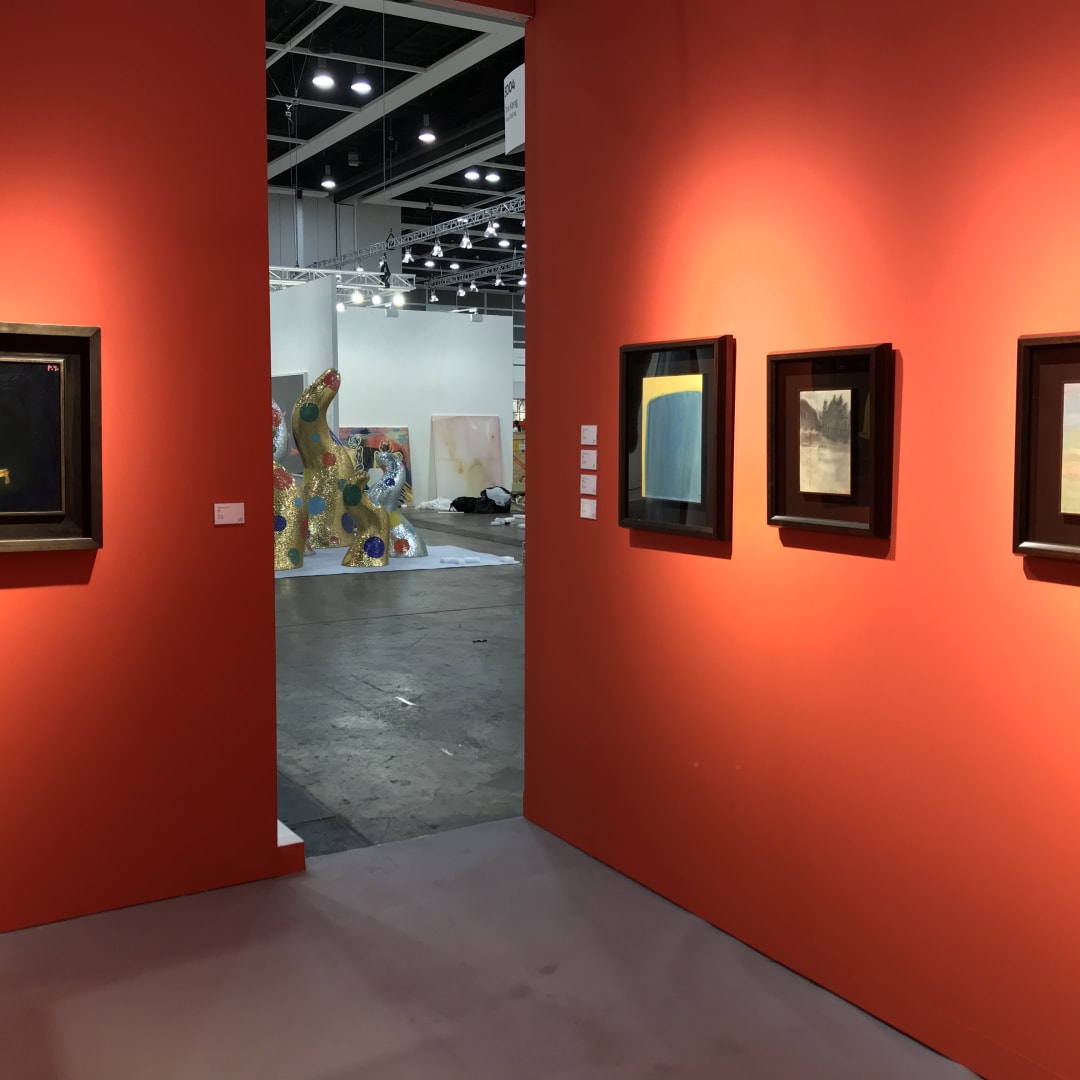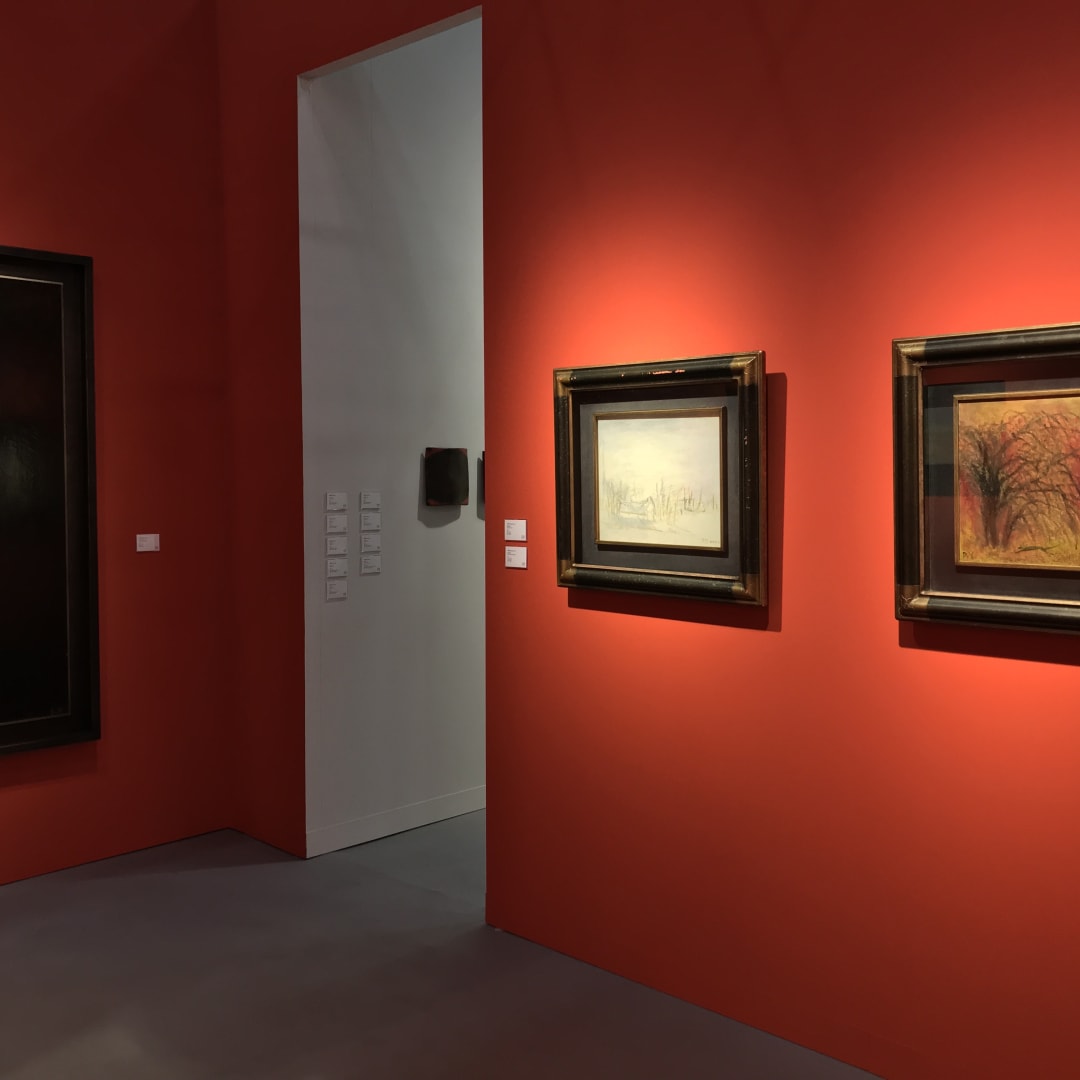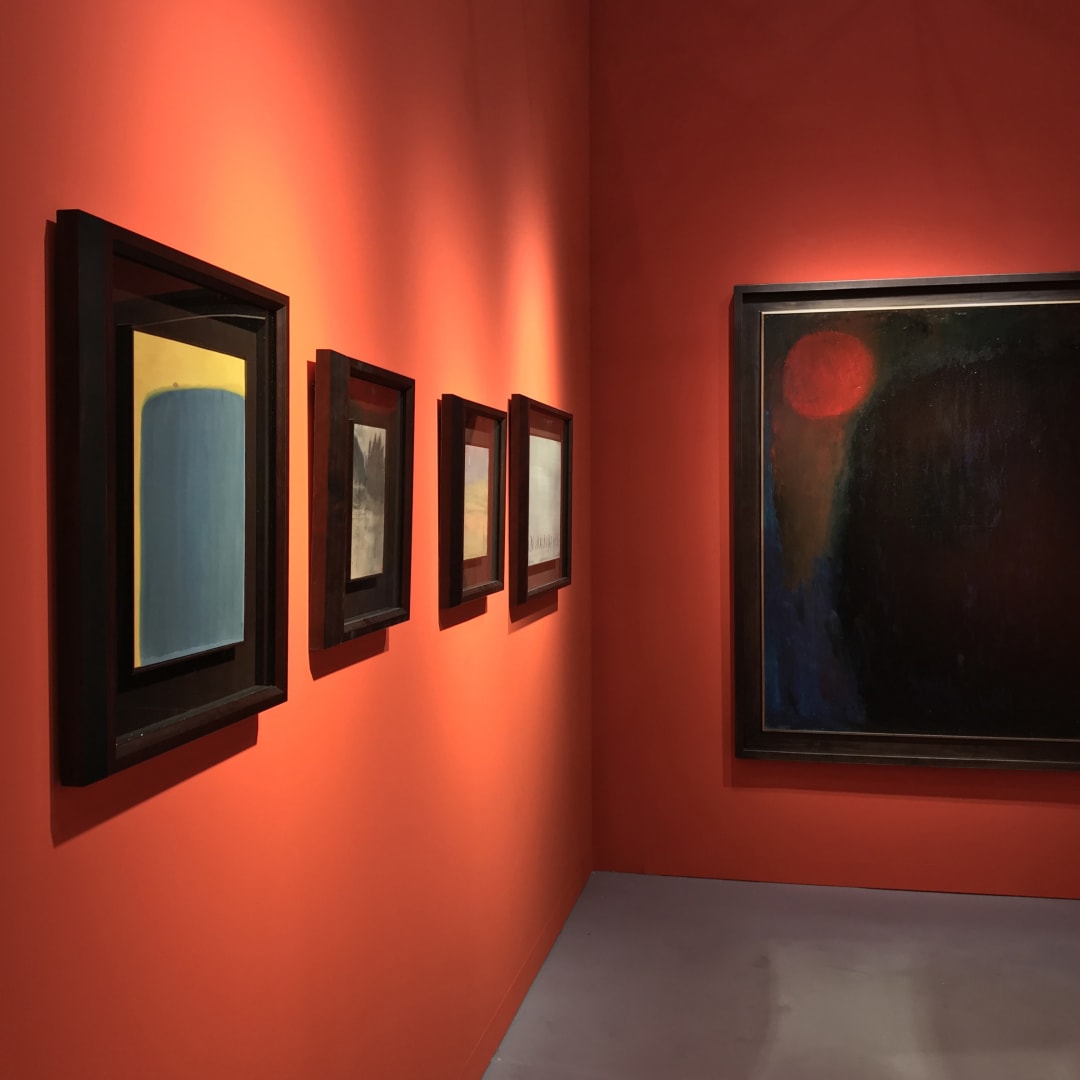Booth 3D04
Artists Wang Pan-youn
Kabinett: The Realm of Solitude – Wang Pan-youn
The first half of the 20th century saw an intense cultural exchange and population movement. Some emigrated for lofty ideals; others suffered displacement because of warfare. Nostalgia and loneliness became entwined in the collective consciousness of these roamers or displaced persons. Parallel to The Stranger project at the gallery’s main booth, The Realm of Solitude highlights the despondency and ruefulness in Wang’s work, echoing a sentiment at once personal and universal.
Wang’s work, permeated with an enduring sense of nostalgia, mirrors the tumultuous times he lived through, simultaneously attesting to the modern history of Taiwan. Discontent with his life, Wang projects himself as solitary animals, humans, sails, or houses in his painting. The forlorn artistic language speaks a wistful dream where home is a distant memory, a lifetime of displacement a haunting evanescence. This poignant aesthetics of solitude reflects not only the artist’s personal experience, but a fragment of collective memory. Personal struggle and emotional suffering imbue the artist’s work, embodied through a minimal composition and a succinct palette. The subject in his painting is reduced to a distorted form closely reflective of his mentality.
This year Tina Keng Gallery presents The Stranger and The Realm of Solitude in Kabinet section, delving into diverse iterations of identity born out of cross-cultural experiences. These five artists each has shaped a seminal aspect of Chinese art, allowing them to observe differences between the self and the other. Hence, the cutorial project serves as a profound cultural reflection, distilling an artistic achievement that transcends a singular cultural context, expanding the value of the classical. Tina Keng Gallery shoulders the promotion and continuation of Chinese modern art. For Art Basel Hong Kong, we hope to accentuate new heights where Eastern and Western cultures collide, in a reinterpretation of the constantly shifting relationship between the 20th-century East Asian art history and contemporary art.



